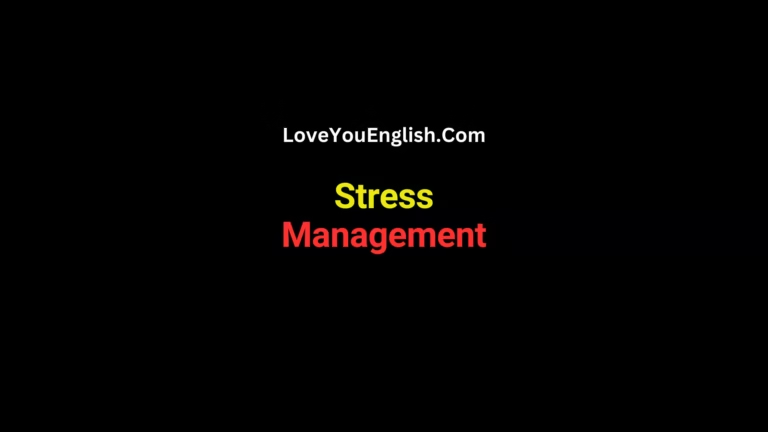Essay About Corruption in English
Corruption is one of the biggest challenges facing societies around the world.
It affects governments, businesses, and individuals, making life unfair and often difficult for ordinary people.
In this post, we will explore what corruption is, how it happens, its effects, and the steps we can take to fight it.
What is Corruption?
Corruption happens when people misuse their power or position for personal gain.
It can involve giving or taking bribes, favoritism, embezzlement (stealing public money), or using influence unfairly.
Corruption can occur in many forms, such as in politics, business, education, healthcare, and even daily life.
Types of Corruption
Bribery
Bribery happens when someone gives money, gifts, or favors to another person in exchange for an unfair advantage.
For example, a company may pay a government official to win a contract.
Embezzlement
This is when someone steals money that they are supposed to manage or protect.
For example, a government officer might take funds meant for building roads and use them for personal needs.
Favoritism and Nepotism
Favoritism occurs when people give jobs or benefits to friends, relatives, or those they prefer, instead of choosing the most deserving person.
This is unfair and discourages hard work.
Extortion
Extortion happens when someone forces another person to give money or favors under threat.
For example, a police officer might threaten to file false charges unless a person pays a bribe.
Fraud
Fraud involves lying or deceiving others to gain money or benefits.
For example, a company may cheat on taxes or provide fake documents to get government benefits.
How Does Corruption Happen?
Corruption can occur due to various reasons:
Greed
Many people engage in corruption because they want more money or power.
Lack of Accountability
When people are not punished for corrupt activities, they feel free to continue doing wrong.
Low Salaries
In some cases, people turn to corruption because they are underpaid and struggle to meet their basic needs.
Weak Laws
If laws are not strict or are poorly enforced, corrupt individuals find it easy to escape punishment.
Cultural Acceptance
In some societies, corruption becomes a way of life, and people see it as normal or necessary.
The Effects of Corruption
Corruption affects everyone. It harms the economy, reduces trust in institutions, and creates inequality.
Economic Problems
Corruption reduces investments and slows down development. For example, if money meant for schools is stolen, children do not get a proper education, and the country’s future suffers.
Inequality
Corruption benefits the rich and powerful, leaving the poor and vulnerable even worse off. It creates a society where money matters more than merit or hard work.
Loss of Trust
People lose trust in governments, police, and other institutions when they see corruption everywhere. This makes it harder for societies to work together to solve problems.
Harm to Public Services
Corruption weakens public services like healthcare, education, and infrastructure. For example, if a hospital is built with poor-quality materials because of corruption, it puts lives at risk.
Encourages Crime
Corruption often works hand in hand with other crimes, such as smuggling, trafficking, and money laundering. It creates an environment where lawbreakers thrive.
Examples of Corruption
To understand corruption better, let us look at some examples:
In Politics
A politician may take bribes from companies to approve harmful projects, ignoring the impact on people or the environment.
In Business
A company might pay officials to avoid taxes or to win government contracts unfairly.
In Daily Life
A person might pay a bribe to a traffic officer to avoid a fine, even if they broke the law.
Fighting Corruption
Corruption is a tough problem to solve, but it is not impossible.
We can take steps at individual, societal, and governmental levels to fight it.
What Can Individuals Do?
Be Honest
Avoid giving or taking bribes, even if it seems like the easier option.
Report Corruption
If you see corruption happening, report it to the authorities or anti-corruption organizations.
Educate Yourself and Others
Learn about corruption and spread awareness in your community. Teach people why corruption is harmful.
Vote Wisely
Support honest leaders who are committed to fighting corruption.
What Can Society Do?
Demand Transparency
Citizens can demand that governments and organizations share information about how money is spent.
Support Whistleblowers
Whistleblowers are people who expose corruption. Society should protect and support them.
Encourage Accountability
Ensure that those involved in corruption are punished. This will discourage others from doing the same.
What Can Governments Do?
Make Stronger Laws
Governments must create and enforce strict anti-corruption laws to punish wrongdoers.
Improve Salaries
Paying workers fair wages reduces the temptation to engage in corruption.
Use Technology
Technology can help reduce corruption by making processes transparent. For example, online systems for paying taxes or applying for permits reduce opportunities for bribery.
Create Independent Anti-Corruption Agencies
These agencies can investigate and prosecute corruption cases without interference.
Success Stories
Many countries and organizations have successfully reduced corruption. For example:
- Singapore: This country implemented strict anti-corruption laws and set up independent bodies to monitor corruption. Today, it is known for its clean governance.
- Rwanda: After years of problems, Rwanda improved its government systems and used technology to make public services transparent.
- Technology Initiatives: Some countries use mobile apps where citizens can report corruption anonymously.
Conclusion
Corruption is a major challenge, but we can fight it by being honest, holding leaders accountable, and demanding transparency.
Every person, from individuals to governments, has a role to play in reducing corruption.
Together, we can build a fairer, more equal, and more prosperous society.
Let us take a stand against corruption and create a better world for future generations.
What do you think are the best ways to fight corruption? Share your thoughts in the comments below!
Read more:
- Essay About Festivals of India for Students
- Essay About Unemployment: Economic and Social Challenge
- Essay Writing: The Importance of Discipline
- Essay About Junk Food for Students & Children






